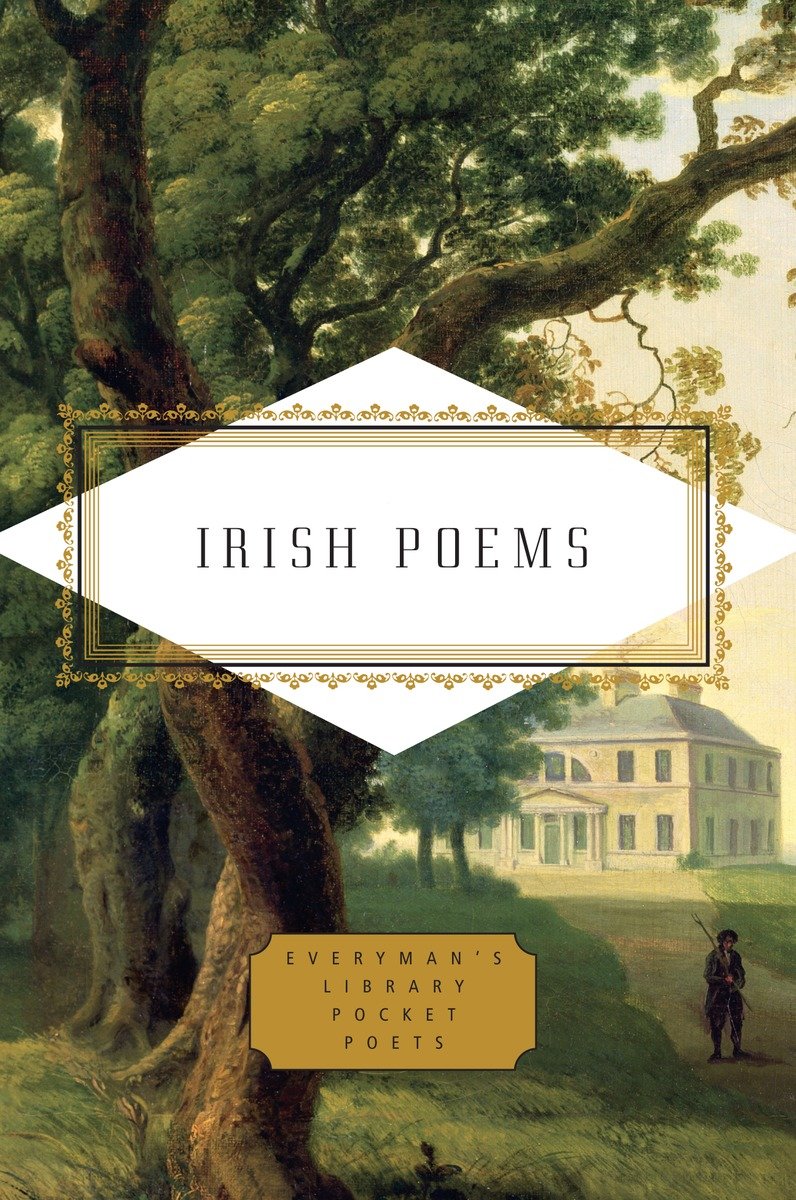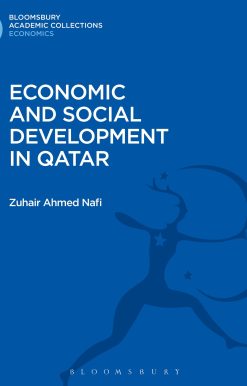No gift registry found click here to create new registry
Cart contain Gift Registry Items cannot add products
Irish Poems
16.00 JOD
Please allow 2 – 5 weeks for delivery of this item
Add to Gift RegistryDescription
Irish Poems is a treasury of poetry from the Emerald Isle, stretching back fourteen centuries. From the romantic ballad to the rebel song, from devotional Christian verse to revivals of ancient Celtic myth, poetry has long been Ireland’s most eloquent response to its turbulent and colorful history. Irish Poems gives us a dazzling selection from a long and distinguished poetic tradition, ranging from the earliest Gaelic bards up to the present. Organized around such themes as politics, religion, Gaelic culture, the Irish landscape, and matters of the heart, the poems collected here come from a wide range of writers old and new, including such literary giants as Jonathan Swift, Oliver Goldsmith, Oscar Wilde, W. B. Yeats, J. M. Synge, Samuel Beckett, Louis MacNeice, Patrick Kavanagh, Paul Muldoon, Evan Boland, Seamus Heaney, and many more.
Additional information
| Weight | 1.17 kg |
|---|---|
| Dimensions | 1.91 × 11.18 × 16.51 cm |
| PubliCanadation City/Country | USA |
| Format | |
| language1 | |
| Pages | 240 |
| Publisher | |
| Year Published | 2011-2-1 |
| Imprint | |
| ISBN 10 | 030759498X |
| About The Author | Matthew McGuire was born in Belfast and is a lecturer at the University of Glasgow. He has published widely on both Irish and Scottish literature. |
| Table Of Content | RELIGIOUS MATTERSSt Columbanus A Boat SongAnon. Monastic PoemAnon. Hermit’s SongAnon. Saint Patrick’s BreastplateAustin Clarke Penal LawDenis Devlin Ank’hor VatW. R. Rodgers LentTom Paulin DesertmartinPeter Fallon The HerdJohn Hewitt from Freehold: from The Lonely Heart GAELIC MATTERSFear Flatha Ó Gnimh from The Passing of the PoetsMathghamlain Ó Hifearnáin My Son, Forsake Your Art Dàibhí Ó Bruadair For the Family of Cúchonnacht Ó Dálaigh Aogán Ó Rathaille The Brightest of the Bright Brian Merriman from The Midnight Court Antoine Raifterirí ‘I am Raifeirí, the poet’Sir Samuel Ferguson Deirdre’s Lament for the Sons of UsnachWilliam Allingham The FairiesW. B. Yeats Cuchulain’s Fight with the SeaSeàn Ó Ríordáin ClaustrophobiaNuala Ní Dhomhnaill Miraculous Grass POLITICAL MATTERS Fearghal Óg MacWard from The Flight of the Earls, 1607Anon. The Croppy BoyAnon. The Shan Van VochtAnon. The Orange LilyJames Clarence Mangan Kathaleen Ny-Houlahan Thomas Davis Lament for the Death of Eoghan Ruadh O’NeillThomas Davis A Nation Once AgainRobert Dwyer Joyce The Wind that Shakes the BarleyW. B. Yeats September 1913W. B. Yeats The Wild Swans at CooleSeamus Heaney Requiem for the CroppiesSeamus Heaney PunishmentSeamus Heaney from Whatever You Say Say NothingSeamus Heaney from The Cure at TroyDerek Mahon A Disused Shed in Co. WexfordEiléan Ní Chuilleanàn Deaths and EnginesPaul Muldoon Lunch with Pancho Villa Paul Muldoon AnseoPaul Muldoon CubaAlan Gillis ProgressMacdara Woods Seconds OutPLACE MATTERS Jonathan Swift Holyhead. Sept. 25, 1727Oliver Goldsmith from The Deserted VillageThomas Moore ‘Dear Harp of my Country!’W. B. Yeats The Lake Isle of InnisfreePatrick Kavanagh EpicLouis MacNeice BelfastLouis MacNeice DublinPeter St John The Fields of AthenrySeamus Heaney Anahorish Michael Longley The Linen IndustryDerek Mahon GlengormleyThomas McCarthy The Standing TrainsCiaran Carson Belfast Confetti EXPERIENCE MATTERSSamuel Thompson To a HedgehogJames Orr from The Irish Cottier’s Death and BurialThomas Moore ‘’Tis the last rose of summer’James Clarence Mangan Dark RosaleenJames Clarence Mangan The Nameless OneJames Clarence Mangan Good Counsel Oscar Wilde from The Ballad of Reading GaolFrancis Ledwidge JuneW. B. Yeats The Stolen ChildW. B. Yeats Down by the Salley GardensW. B. Yeats To a Wealthy Man Who Promised a Second Subscription to the Dublin Municipal Gallery if It were Proved the People Wanted PicturesW. B. Yeats An Irish Airman Forsees His DeathW. B. Yeats The Second ComingW. B. Yeats Sailing to ByzantiumJames Joyce Ecce PuerPatrick Kavanagh Memory of My FatherPatrick Kavanagh PreludeSamuel Beckett GnomeThomas Kinsella ChrysalidesJohn Montague ‘Like dolmens round my childhood, the old people’ John Montague 11 rue DaguerreMichael Hartnet There Will be a TalkingRichard Murphy Seals at High IslandLouis MacNeice SnowLouis MacNeice WolvesMichael Longley In MemoriamSeamus Heaney Mid-Term BreakSeamus Heaney from Clearances Seamus Heaney The UndergroundEiléan Ní Chuilleanàn LondonEiléan Ní Chuilleanàn So She Looked, in that CompanyEavan Boland In Her Own ImageEavan Boland Night FeedEavan Boland NocturneCiaran Carson Turn AgainCiaran Carson The Exiles’ ClubMedbh McGuckian The ‘Singer’Medbh McGuckian The Flower MasterMedbh McGuckian The SittingPaul Muldoon QuoofPaul Muldoon SymposiumColette Bryce The Full Indian Rope TrickAlan Gillis The Ulster WayNick Laird Poetry LOVE MATTERSJ. M. Synge ‘Is it a month’W. B. Yeats He Wishes for the Cloths of HeavenW. B. Yeats No Second TroyPadraic Colum She Moved Through the FairPatrick Kavanagh On Raglan RoadJames Simmons The ArchaeologistPaul Durcan The Haulier’s Wife Meets Jesus on the Road Near MooneLouis MacNeice MayflyMedbh McGuckian On Not Being Your LoverSinead Morrissey & Forgive Us Our TrespassesLeontia Flynn Come Live with MeIndex of First LinesAcknowledgments |
| Excerpt From Book | From the Preface by Matthew McGuireOut of the argument with others we make rhetoric; out of the argument with ourselves we make poetry. So said Ireland's most famous poet, W. B. Yeats. And it is poetry, rather than prose, that is seen as providing the most sustained and meaningful response to Ireland's turbulent history. From the romantic ballad to the rebel song, Irish poetry has been 'involved', to borrow a local euphemism, in mediating and mitigating histories of loyalty and loss. For some Irish writers poetry has been a place of self-reflection and self-doubt, a moment of quietude amid the deafening roar of partisan politics and all its bloody consequences. Argument, altercation, accommodation; the leitmotifs of many of the poems gathered in this volume. Over this aspect of Irish poetry preside the towering figures of William Butler Yeats and Seamus Heaney. Their most famous work emerged in response to the collapse of Irish society, Yeats during the aftermath of the 1916 Rising and Heaney during the outbreak of the Northern Irish Troubles in 1969. Ironically, if civil war made civil hands unclean, it also unearthed a fertile ground for the poetic imagination. Under the heading of 'Political Matters' this book features attempts by Yeats, Heaney and others to interrogate the past, realize the present, and realign the co-ordinates of Ireland's future.Dating back over fourteen hundred years, Irish poetry has its roots in two traditions: the devotional verse of the early Christian church and the long lyric poem of the bard, or seanchaidhe, the carrier of communal memory. Religion has always been part of Ireland's historical and cultural makeup, both a blessing and a curse, the pathway to another world and an obstacle on the road to renewal. Under the aegis of 'Religious Matters' this book features a number of attempts, both ancient and modern, to map the landscape of Ireland's theological inheritance.'Gaelic Matters' turns its attention to that other vital source of Irish poetry, the Irish language. Up until the eighteenth century Irish poetry was primarily a Gaelic affair. The deep well of Gaelic culture, its steady decline and the catastrophic effects of the Irish famine all feature in this volume. There is an extract from Brian Merriman's eighteenth-century epic, The Midnight Court. The high point of modern Gaelic poetry, it is an epic masterpiece, deeply wrought and darkly comic. The book also features the interest in ancient Celtic myth, including the stories of Cuchulain and Deirdre, by various Anglo-Irish writers, not least W. B. Yeats himself.One might be forgiven for thinking that Irish poetry is on long meditation in a time of civil war. The remaining sections of the book offer a welcome antidote to such mistaken notions. 'Place Matters' includes a diverse set of responses to the experience of the various Irish landscapes, both rural and urban. It explores what it means to come from, and reside in, a particular place. 'Experience Matters' charts the ways in which Irish writers, from the eighteenth century to the present day, deploy the rigours of poetic form to illuminate and transform the everyday world. 'Love Matters' concludes this selection, recording an array of Irish responses to what is the most popular and recurrent theme in the whole of poetry. |
| series |
Only logged in customers who have purchased this product may leave a review.
Related products
-
On backorder 2-5 Weeks to Arrive
Add to Gift Registry25.00 JOD -
On backorder 2-5 Weeks to Arrive
Add to Gift Registry10.99 JOD -
On backorder 2-5 Weeks to Arrive
Add to Gift Registry140.00 JOD -
On backorder 2-5 Weeks to Arrive
Add to Gift Registry






Reviews
There are no reviews yet.